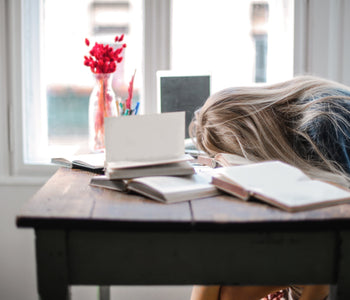December 20 2020
HOW TO PREVENT JET LAG

Every day, millions of travellers struggle against one of the most common sleep disorders — jet lag. For years, jet lag was considered merely a state of mind. Now, studies have shown that the condition actually results from an imbalance in our body’s natural “biological clock” caused by traveling to different time zones. Basically, our bodies work on a 24-hour cycle called “circadian rhythms.” These rhythms are measured by the distinct rise and fall of body temperature, plasma levels of certain hormones and other biological conditions. All of these are influenced by our exposure to sunlight and help determine when we sleep and when we wake.
When traveling to a new time zone, our circadian rhythms are slow to adjust and remain on their original biological schedule for several days. This results in our bodies telling us it is time to sleep, when it’s actually the middle of the afternoon, or it makes us want to stay awake when it is late at night. This experience is known as jet lag.
Some simple behavioural adjustments before, during and after arrival at your destination can help minimize some of the side effects of jet lag.
Select a flight that allows early evening arrival and stay up until 10 p.m. local time. (If you must sleep during the day, take a short nap in the early afternoon, but no longer than 30 minutes. Set an alarm to be sure not to over sleep.)
Anticipate the time change for trips by getting up and going to bed earlier several days prior to an eastward trip and later for a westward trip.
Upon boarding the plane, change your watch to the destination time zone.
Avoid alcohol or caffeine at least three to four hours before bedtime. Both act as “stimulants” and prevent sleep.
Upon arrival at a destination, avoid heavy meals
(a snack—not chocolate—is okay).
Avoid any heavy exercise close to bedtime.
(Light exercise earlier in the day is fine.)
Bring earplugs and blindfolds to help dampen noise and block out unwanted light while sleeping.
Try to get outside in the sunlight whenever possible. Daylight is a powerful stimulant for regulating the biological clock.
(Staying indoors worsens jet lag.)
Contrary to popular belief, the type of foods we eat have no effect on minimizing jet lag.
According to experts, stress or the potential for stress is another problem that can lead to sleeplessness. Two common travel related stress conditions are the “First Night Effect” and the “On-Call Effect.” The first condition occurs when trying to sleep in a new or unfamiliar environment. The second is caused by the nagging worry that something just might wake you up, such as the possibility of a phone ringing, hallway noise or another disruption.
Try these tips on you next trip to help avoid travel-related stress and subsequent sleeplessness.
Check with the hotel to see if voice mail services are available to guests. Then, whenever possible, have your calls handled by the service.
Check your room for potential sleep disturbances that may be avoided; e.g., light shining through the drapes, unwanted in-room noise, etc.
Utilize music, ambient noise machines, or even better “Sleep Recordings” in the hotel room to create a familiar pattern for sleep.
Request two wake-up calls in case you miss the first one.

By listening to Speed Sleep repeatedly you will quickly:
Achieve deep sleep within minutes
Awaken refreshed, even during the day, from a 25 minute Speed Sleep nap
Discover new sources of physical energy and mental sharpness
Minimize the effects of jet lag when traveling


